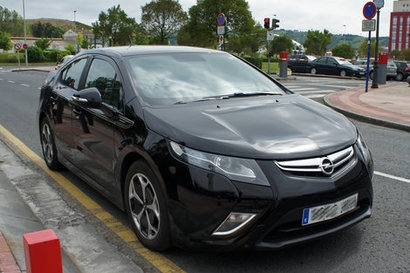
As electric vehicles start to become mainstream and the contribution of renewable energy to the electricity grid grows, by 2030 over 70 percent of CO2 emissions from typical new road vehicles could arise during the production – rather than use – phase of the life cycle of a typical vehicle.
Consequently, the Low Carbon Vehicle Partnership (LowCVP) is calling for the development and introduction of a life cycle CO2 metric to better inform policy and will be presenting proposals for its wider implementation at the two-day Cenex-LCV2019 Event which begins at Millbrook today.
The LowCVP is a collaboration between over 200 organisations representing government, industry and the widest range of stakeholders which is working to accelerate the transition to low carbon, low emission road transport across all sectors.
Life cycle assessment is at the foundation of the LowCVP’s 2019-20 work programme which aims to create the building blocks and evidence base across all road transport areas to enable the largest, most rapid reductions in total greenhouse gas emissions from transport.
LowCVP’s Head of Projects, Gloria Esposito will be presenting the LowCVP’s work on life cycle assessment at the Millbrook event. She will call for a full review and update of existing automotive life cycle emissions inventories, for low carbon vehicle policy to take account of these metrics and for automotive sector guidelines to be based upon them while ensuring consistency and comparability of data.
“Life Cycle thinking must become mainstream in policy considerations in the UK – and elsewhere – as the impacts of road vehicles during the production (and to a lesser extent, disposal) phases of the vehicle life cycle become much more prominent” said Ms Esposito. “A stronger evidence base needs to be developed and used to embed life cycle thinking into the UK’s supply chains, in policy and regulatory discussions and in the EU’s considerations around future car CO2 regulation.
Among other highlights of this year’s work programme, the Partnership will be concluding the work of the Electric Vehicle Energy Taskforce (EVET), set up at the request of Government to help ensure the UK’s energy system is ready and able to facilitate the mass take up of EVs. EVET is due to present recommendations in a report to be published this autumn.
The Partnership will also be working on projects to stimulate the uptake of high blend renewable fuels – including the production of a Renewable Fuels Guide - and helping further with preparations for the introduction of E10 (a 10 percent ethanol blend in petrol). The LowCVP’s life cycle work shows that, properly verified and regulated, low carbon fuels can make a significant, near-term contribution to reducing greenhouse gas emissions.
Building on the leading UK work around the carbon assessment of biofuels, the Partnership will be further developing carbon and sustainability criteria proposals for low carbon transport fuels and other bioenergy sectors.
Other key areas in the LowCVP’s new work programme include:
Identifying the barriers and opportunities for electrification of depot-based fleets.
Setting the standards for Ultra Low Emission Trucks to enable the creation of a policy framework to support their accelerated introduction.
Working with stakeholders in the rapidly expanding Ultra Low Emission Bus (ULEB) market to further develop product and promote its uptake.
Several work-streams will help ensure there is informed demand for low carbon/emission vehicles, through consumer information, labelling and other mechanisms. There will be a particular focus on supporting the finance and leasing sector in accelerating the ULEV transition.
Andy Eastlake, LowCVP’s Managing Director, added that even with 16 years of experience accelerating the market for low carbon vehicles and fuels it still feels as exciting and challenging as ever and that although ‘tipping points’ are often discussed, on a number of fronts it does feel like now might be the time.
The LowCVP is again collaborating with six other agencies in the government-associated 'innovation support ecosystem' at the Cenex-LCV 2019 event on 4-5 September 2019. The 'UK Government Pavilion' at the event has been established to help visitors understand what support is available to them in terms of the drive for innovation on the Road to Zero.
LowCVP is partnering with the Advanced Propulsion Centre, the Automotive Council, Centre for Connected & Autonomous Vehicles, Department for International Trade, Innovate UK and the Office for Low Emission Vehicles on the Pavilion. The centre of the Pavilion will be devoted to a ‘Future of Technology Zone’ where some of the exciting opportunities and big challenges for the automotive industry will be discussed.
For additional information:

